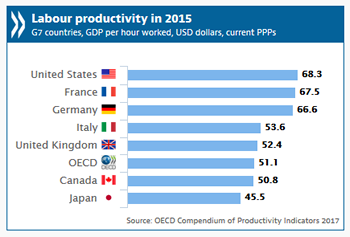A group of German workers just won a 28-hour week to help work-life balance

Employees for IG Metall, have won the right to a 28 hour work week for up to two years in order to help with childcare. Image: REUTERS/Bor Slana

Get involved with our crowdsourced digital platform to deliver impact at scale
Stay up to date:
Germany
These days, it’s common for progressive executives to advocate for more flexible work hours. But demands for better work-life balance are also coming from some unexpected—and exciting—corners.
IG Metall, Germany’s biggest trade union representing metal and engineering workers, struck a deal that gives industrial employees the right to work a reduced week—28 hours, instead of 35—for up to two years in order to care for their families.
According to the BBC, the deal, struck with the employers’ federation, Südwestmetall, covers almost one million workers in Baden-Württemberg state. It could be extended to an additional 3.9 million workers in Germany’s industrial sector, who have also been clamoring for change.

“The agreement is a milestone on the way to a modern, self-determined world of work,” IG Metall leader Jörg Hofmann told the BBC.
The trade union used a strong economy and low unemployment to argue that workers should not take a pay cut for working fewer hours. This was rejected, although workers did receive a 4.3% pay hike from April.
In return for allowing employees to work fewer hours when needed, companies won the right to offer 40-hour work weeks to those willing to put in longer days, instead of the standard 35.
The IG Metall victory could have big implications for other German workers. The BBC said the deal could have a ripple effect for workers in the construction, telecoms and chemical industries, who’ve also been pushing for more flexible work days.
The German deal is also noteworthy because it represents younger generations’ shifting attitudes toward work, according to the Financial Times. “More and more people have periods in their lives when they want to work less, for example to look after elderly relatives, or to take a sabbatical or unpaid leave,” Hanna Schwander, professor of public policy at the Hertie School of Governance in Berlin, told the paper(paywall).
Crucially, the option of a reduced work week stands to benefit both men and women. The question is whether men will embrace the possibility of taking time off to care for their families. Sandberg, Facebook’s COO, has made repeated calls for more shared caregiving responsibility between genders. In a recent interview with Quartz, Sandberg noted that one way to improve work for women would be to “change our culture, which teaches all of us—women and men—that men should achieve and women should support others. The truth is that everyone should achieve and everyone should support others.”
Don't miss any update on this topic
Create a free account and access your personalized content collection with our latest publications and analyses.
License and Republishing
World Economic Forum articles may be republished in accordance with the Creative Commons Attribution-NonCommercial-NoDerivatives 4.0 International Public License, and in accordance with our Terms of Use.
The views expressed in this article are those of the author alone and not the World Economic Forum.
Related topics:
The Agenda Weekly
A weekly update of the most important issues driving the global agenda
You can unsubscribe at any time using the link in our emails. For more details, review our privacy policy.
More on Jobs and the Future of WorkSee all
Roman Vakulchuk
April 24, 2024
Eli Joseph
April 19, 2024
Kate Whiting
April 17, 2024
Juliana Guaqueta Ospina
April 11, 2024
Victoria Masterson
April 9, 2024







